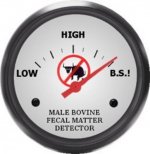In simple terms yes, there is no problem. Reading your signature line shows you run an Akrapovic pipe. Are you running the cat bypass also? If so, you may find the 93 will let the timing not retard and give you more bottom to mid performance.
In regards to reading these other posts, many have mentioned pre ignition. Octane is the fuels ability to have a controlled burn under pressure. If the fuel explodes rather than burns you have detonation, this is bad if not controlled. Pre ignition is different from detonation. Pre ignition is when something other than the spark plug begins the burning of the fuel. Often it is blamed on hot exhaust valve edges, carbon or a sharp cross section in the combustion chamber, even an improper spark plug heat range.
Depending upon various design factors, unless an engine has the ability to operate on higher octane efficiently, the higher octane can produce less power. However if the engine design can "tune" itself, additional performance may be gained.
We have always run 93 with Yamalube Fuel Med Rx in our 14 RTs. Stock pipe with a cat bypass.
PK

